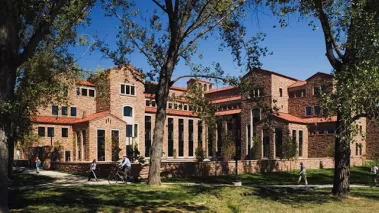Table of Contents
FIRE, NCAC, ACLU-CO, and SPLC Urge CU-Boulder to Uphold Academic Freedom

Yesterday FIRE, the National Coalition Against Censorship (NCAC), the American Civil Liberties Union of Colorado (ACLU-CO), and the Student Press Law Center (SPLC) released a statement urging the University of Colorado at Boulder (CU-Boulder) to reinstate Professor Patricia Adler’s course on “Deviance in U.S. Society” and to publicly reaffirm the boundaries between protected classroom discussion and sexual harassment. Last month, Adler was allegedly given the choice between resigning or discontinuing the “Deviance” course and was told that even if she stayed, she could be fired if anyone filed a complaint against her.
As justification for this threat, Provost Russell Moore said that Adler’s teaching methods—particularly a class in which teaching assistants volunteered to role-play as prostitutes while answering questions—might constitute sexual harassment. But as yesterday’s statement explains, a classroom discussion about sexuality by itself falls far short of the U.S. Supreme Court’s standard for sexual harassment in the educational context, which must be targeted, discriminatory, and so “severe, pervasive, and objectively offensive” that it “effectively bars the victim’s access to an educational opportunity or benefit.” Davis v. Monroe County Board of Education, 526 U.S. 629, 633 (1999). (The Davis standard arises from a case involving K-12 students; the standard for a professor’s speech should be at least as exacting as Davis, and arguably more so.) In this case and many others, however, exposing students to new and perhaps uncomfortable ideas is the educational benefit.
Adler’s teaching is also clearly not sexual harassment under CU-Boulder’s sexual harassment policy, which prohibits “unwelcome sexual conduct that is ... severe or pervasive” (emphasis added). The suggestion that an elective course could constitute harassment just because it deals frankly with sexuality creates two problems, as explained in yesterday’s statement:
The university’s response to this situation, inappropriately raising the spectre of sexual harassment to attack and intimidate the professor, illustrates the need for vigilance in enforcing academic freedom, both to protect faculty and students’ right to inquire and discuss sensitive topics, and to prevent demeaning or distorting the serious problem of real harassment and abuse.
An ad hoc committee of professors has reviewed and approved the course and a CU-Boulder spokesman has said that Adler is “free to teach the course next semester if she so desires.” But unless and until the university clarifies that its actions against Adler were unwarranted and unconstitutional, academic freedom will still be at risk:
The apparent conditional re-instatement of the course pending faculty review hardly cures the problem, since this course was apparently singled out for extraordinary scrutiny based solely on the content, in violation of fundamental First Amendment principles. Subjecting one course to such review, highly irregular in itself, inevitably has a chilling effect, not only on Professor Adler, but on the faculty as whole and even on faculty at other universities. The message that potentially controversial classroom content would make a professor vulnerable to special scrutiny and review is a direct threat to academic freedom.
The American Sociological Association also sent a letter to College of Arts and Sciences Dean Steven Leigh on December 24, emphasizing that faulty claims of sexual harassment may not be used to curtail academic freedom.
Inside Higher Ed reports today that “Adler currently has a lawyer talking to the university” about the case. In a statement, Adler said:
Although it is gratifying that the Executive Committee in the Sociology Department has affirmed the Ad Hoc Committee’s decision to permit me to continue teaching a course that for 25 years has been held in high esteem with no reported complaints, the fact that it had to undergo this extraordinary scrutiny to reverse CU’s initial jump to judgment is a sad statement on what is occurring in universities. My case is just a small step in the fight to preserve academic freedom in universities around the globe. Many issues remain to be addressed in my ongoing relationship with the university, so my future is still unclear. I greatly appreciate the support I have received from students, faculty, and outside organizations.
Read the statement from FIRE, NCAC, ACLU-CO, and SPLC here.
Image: University of Colorado Boulder - Schools of Tomorrow
Recent Articles
FIRE’s award-winning Newsdesk covers the free speech news you need to stay informed.

O holy fight: New Hampshire Satanic Temple statue threatened by more than vandals

California and other states are rushing to regulate AI. This is what they’re missing

One day after FIRE lawsuit, Congress passes changes to filming permits in national parks
